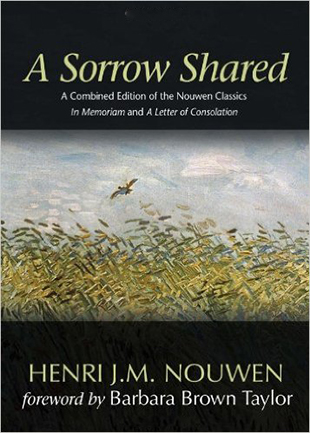This brief paperback by the renowned Catholic writer Henri J.M. Nouwen (d. 1996) is the first English edition of two pieces written at the time of his mother's death in an Amsterdam Hospital in 1978. In the first, he responds to the shock of watching her suffer for five days, and in the second, written to his father six months later, he ponders their mutual loss in the context of the mysteries of life and death in Christ. As in most of his other writings, Nouwen is very candid about his feelings of loss, confusion, and grief.
In In Memoriam, Nouwen arrives from New York in time to be with his dying mother in her last days. She is pleased to have him pray for her, but the next day, Nouwen notices that her eyes have changed. Three weeks before his mother had told him that she was afraid to die and to appear before God and show him her life. Nouwen feels helpless as he watches her suffer and cannot help but ask why such a loving Christian should have to go through so much pain at the end of her life. While Nouwen is making a phone call, his mother dies. Going to his parent's house, he feels that everything there cries out her absence. After celebrating the Eucharist for his mother and attending the funeral service, Nouwen returns to the United States and is swamped by mixed emotions of joy and sorrow, sadness and gratitude, confusion and beautiful memories.
In A Letter of Consolation, the author responds to the letters from his father about his grief and struggle to build a new life without his wife. Nouwen assures him that real grief is not healed by time. In fact, time deepens our grief. He commends his father for his blooming tenderness and recalls how when he used to call home, his mother would take the call. Now his father has become more sociable. Nouwen sees these transformations in his father as gifts of his mother's death. The author recalls that it was his mother's devotion to the Eucharist which spurred him to become a priest — another gift that Nouwen harvests from her death. Writing during Holy Week, the author ponders the meaning of the resurrection as the victory of love over death.
